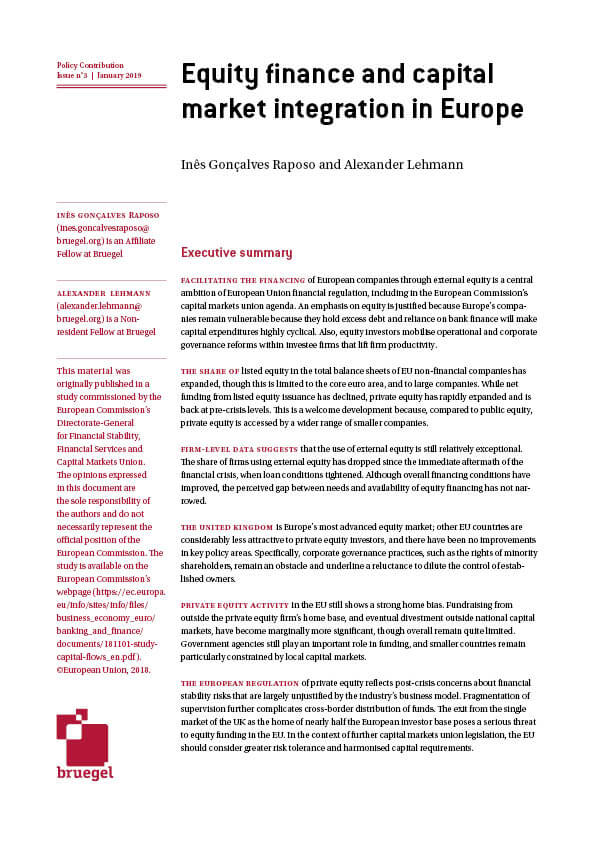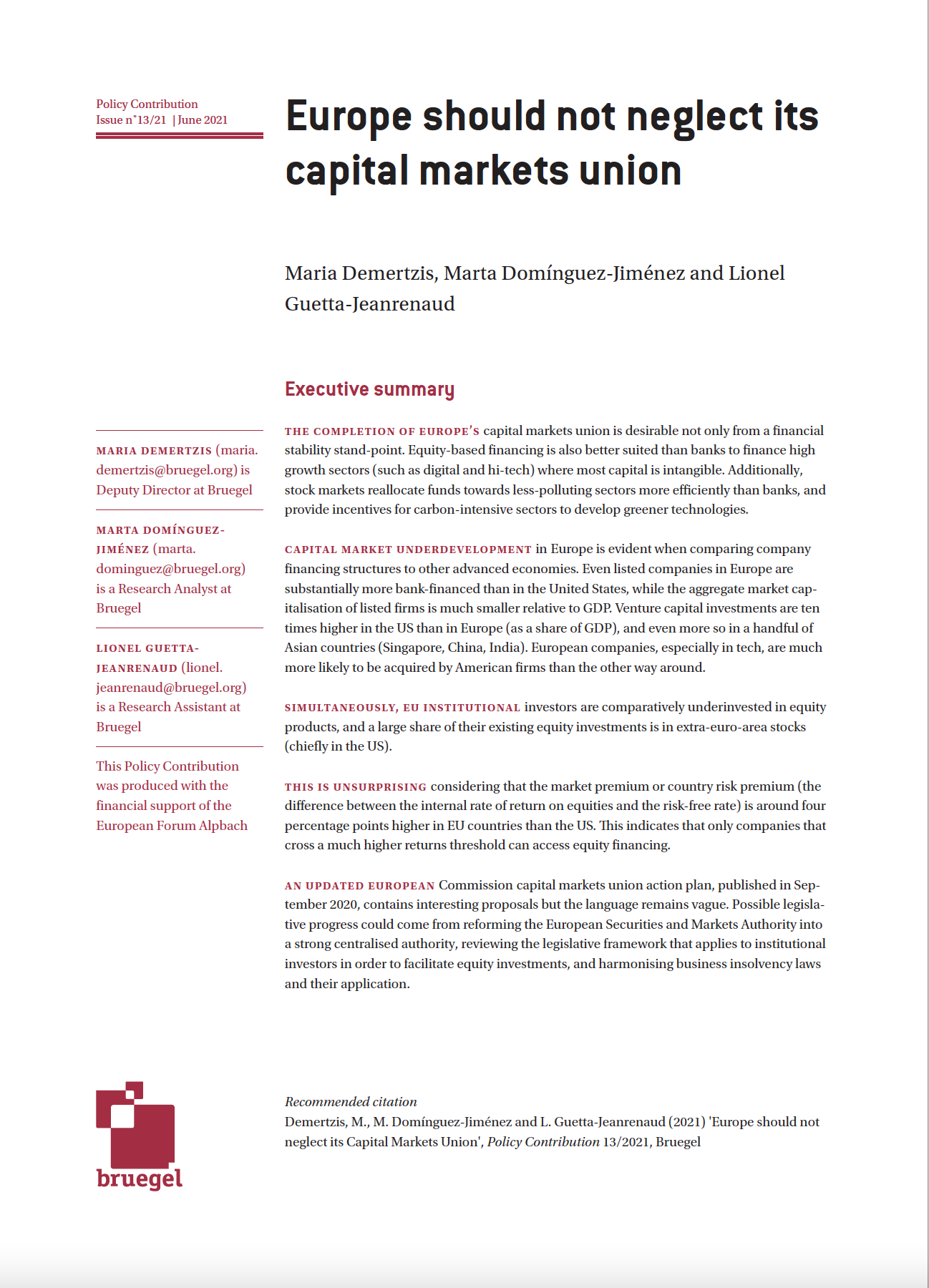Policy Contribution
Equity finance and capital market integration in Europe
Facilitating the financing of European companies through external equity is a central ambition of European Union financial regulation, including in the European Commission’s capital markets union agenda. Against this background, the authors examine the present use of external equity by EU companies, the roles of listings on public markets, and the regulatory impediments in national laws. They assess to what extent EU market integration has overcome the crucial obstacle of shallow local capital markets.
This material was originally published in a study commissioned by the European Commission’s Directorate-General for Financial Stability, Financial Services and Capital Markets Union. The opinions expressed in this document are the sole responsibility of the authors and do not necessarily represent the official position of the European Commission. The study is available on the European Commission’s webpage . ©European Union, 2018.
Facilitating the financing of European companies through external equity is a central ambition of European Union financial regulation, including in the European Commission’s capital markets union agenda. An emphasis on equity is justified because Europe’s companies remain vulnerable because they hold excess debt and reliance on bank finance will make capital expenditures highly cyclical. Also, equity investors mobilise operational and corporate governance reforms within investee firms that lift firm productivity.
The share of listed equity in the total balance sheets of EU non-financial companies has expanded, though this is limited to the core euro area, and to large companies. While net funding from listed equity issuance has declined, private equity has rapidly expanded and is back at pre-crisis levels. This is a welcome development because, compared to public equity, private equity is accessed by a wider range of smaller companies.
Firm-level data suggests that the use of external equity is still relatively exceptional. The share of firms using external equity has dropped since the immediate aftermath of the financial crisis, when loan conditions tightened. Although overall financing conditions have improved, the perceived gap between needs and availability of equity financing has not narrowed.
The United Kingdom is Europe’s most advanced equity market; other EU countries are considerably less attractive to private equity investors, and there have been no improvements in key policy areas. Specifically, corporate governance practices, such as the rights of minority shareholders, remain an obstacle and underline a reluctance to dilute the control of established owners.
Private equity activity in the EU still shows a strong home bias. Fundraising from outside the private equity firm’s home base, and eventual divestment outside national capital markets, have become marginally more significant, though overall remain quite limited. Government agencies still play an important role in funding, and smaller countries remain particularly constrained by local capital markets.
The European regulation of private equity reflects post-crisis concerns about financial stability risks that are largely unjustified by the industry’s business model. Fragmentation of supervision further complicates cross-border distribution of funds. The exit from the single market of the UK as the home of nearly half the European investor base poses a serious threat to equity funding in the EU. In the context of further capital markets union legislation, the EU should consider greater risk tolerance and harmonised capital requirements.









